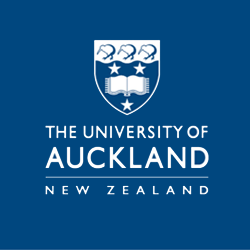
Tātou Tātou – success for all: Improving Māori student success
Status
Completed: 14 March 2012
Project Details
A University of Auckland project that investigated Māori student success in degree-level tertiary education, focused on health settings.
Aims:
The project aimed to:
- examine the ways in which non-lecture teaching and learning helped or hindered Māori success in degree-level education
- explore what ‘success’ meant in health professional degree-level study from a Māori perspective.
Methodology:
The project used a kaupapa Māori research methodology involving the Critical Incident Technique. Critical incident interviews and focus groups were conducted with learners to explore what helped or hindered their success. A Quality Tertiary Teaching Profile was developed for application in health settings.
The following research questions guided the project.
- What teaching and learning practices in non-lecture contexts help or hinder Māori student success in degree-level study in nursing, pharmacy, medicine and health sciences?
- What changes does research in this area suggest are needed to teaching and higher education practices in order to best support Māori success in degree-level study designed to prepare students for work in the health professions?
Team

Dr Elana Curtis
Project Leader
The University of Auckland
Dr Mark Barrow
The University of Auckland
Associate Professor Papaarangi Reid
The University of Auckland
Dr Airini
The University of AucklandStatus
Funding
$111,921.00 (excl GST)
Key Findings
- There is a need for tertiary institutions to provide additional Māori student support services, with a particular focus on fostering cultural bonding between students and their peers. The undergraduate programme was at times unsafe and hindering to Māori student success.
- The role of the educator is both helpful and hindering within non-lecture contexts.
- Key success factors included the ability of educators to develop relational trust, demonstrate cultural safety and utilise high quality teaching and learning methods while having an excellent grasp of the content required.
- Overall, there is a need to explore notions of a hidden curriculum that may be operating within clinical and non-clinical health professional training programmes.
Key Recommendations
Develop a Quality Tertiary Teaching Profile (QTTe) | Develop a profile that gives specific instructions for institutions wishing to better support Māori learners' success.
Ensure the QTTe features five specific elements | Ensure the profile features: effective teaching and learning practices; provides academic support that is culturally appropriate; provides pastoral support that is culturally appropriate; provides a culturally safe learning environment; and encourages cohort cohesiveness.
This report focuses on understanding the teaching practices that help or hinder Māori student success in degree-level health education programs to better support Māori students.
- 14 March 2012